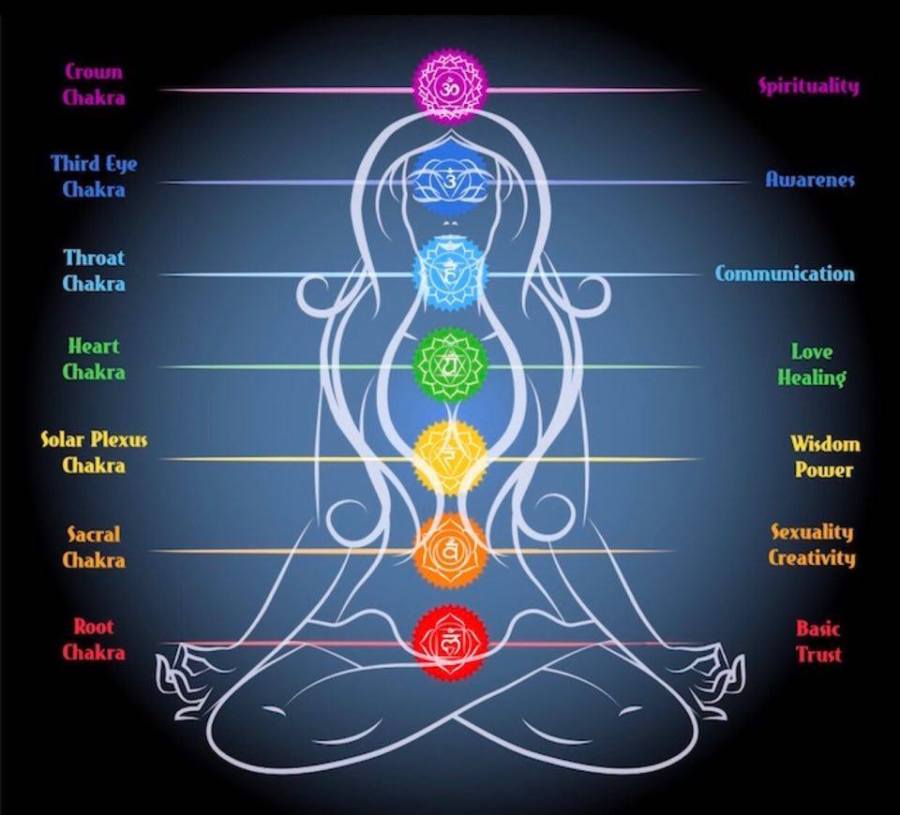We began this semester exploring the social and historical contexts surrounding American relationships with healing and medicine, specifically around the themes of a value of things deemed “natural” and distrust of the medical establishment.
Last week, we started to delve into the Holistic Health Movement of the 1970’s as an extension of American preoccupation with alternative healing. As you learned in those readings, the Holistic Health Movement and New Age religious values are so entangled as to be inseparable.
This week, we’ll be exploring more about what informs New Age and American Metaphysical understandings of the world, common orientations despite the vast number of practices that fit under the umbrella of New Age practices, and some common criticisms aimed at the movement.

A few themes that begin in these readings and continue throughout the semester include: questions of re-interpretation and continuity, issues of appropriation and syncretism, and the evolution of the New Age and Holistic Health movements in relation to the spiritual and medical marketplace.
CHOICE PROJECTS:
Last week, part of your assignment was to:
-
- Review the assignment details for the Choice Project (and the videos where I describe my expectations more in depth) and
- Update the notes Project Progress googlesheet.
If you haven’t already, do that IMMEDIATELY.
Next, create a page on your EduBlogs and title it the name of the first project you are going to tackle.
In this page, I want you to give me as many detail as you can about what project you’ve chosen – what’s the project, what’s the topic or healer or modality you’ll cover, etc. If you’re attending a healing session or interviewing someone, post that information here and wait for approval from me before you reach out to the healer. I’ll communicate with you via comments, so make sure to respond promptly to my comments.
This is also a space where you’ll post drafts of the materials, so I can keep track of your progress. Again, it’s important that you promptly respond to any comments or advice I post in the comments. I’ll also ask you to make adjustments or turn something in; these individual due dates are always on Sunday evenings, unless otherwise negotiated with me.
READING PROMPTS
“The New Age Movement and Western Esotericism”, Wouter J. Hanegraaff (pg 25-50) – iCollege
- Describe each of the different stages of development in the New Age movement
- According to the author, how has the New Age movement transitioned? Do they interpret this as a sign of success or failure?
- According to the author, what religious trends are sometimes mistakenly categorized as New Age?
- How do the course theme of resistance and accommodation relate to the development of New Age movements?
- Describe the relationship of mind, body and spirit in the New Age movements.
- According to this tradition, what is the relationship of healing to spiritual and physical wellbeing?
- What is the relationship between science and the New Age movements?
- Despite the variety of practices and beliefs that fall under the umbrella term “New Age”, what are some of the common themes and beliefs?
- How does the author articulate the difference between “re-interpretation” and “continuity” in these movements?
- What is the role of individualism in New Age values?
- Describe the impact of the capitalism market economy on the New Age movement (and religious traditions in general).
“Metaphysical Healing and Health in the United States”, Brett Hendrickson (pg 347-355) – iCollege
- How does Mind Cure and New Thought view health, illness and healing? How does this manifest in the Metaphysical / New Age traditions?
- How do New Age traditions understand wellness?
- Describe the continuum of New Age healing approach the author notes on page 350. How does this relate to earlier readings of taxonomy of healing traditions and our course theme of the process of legitimation that CAM modalities undergo?
- What is “universalization”, ahistoricity, and decontextual in the New Age context? Why is it understood to be problematic?
- What is the relationship of Euro-American Metaphysicals to their own history?
- Define the terms appropriation, syncretism and borrowing. How are they different? What is the role of power (cultural, systematic, etc), and when is it “okay”?
- What is the relationship between CAM modalities (especially those with New Age and religious undertones), and the overwhelming Christian context in the US? How have different academics and social commentators approaches this syncretic adoption?
Well + Good, “Spiritual Activist Rachel Ricketts Challenges White Women to Rethink Wellness”
- How does Ricketts define wellness, in both the individual and communal sense?
- How does her activism relate to wellness? How does she define “spiritual activism”?
- What criticisms of “wellness culture” does Ricketts highlight?
- What does Ricketts mean by the statement “wellness is political”?
- What does she mean by the phrase “violent experiences” in wellness spaces?
- What ideals is Ricketts’ hoping wellness spaces move towards?
- How does Rachel Ricketts’ article relate to our readings up until now? What connections do you see?
https://www.instagram.com/p/B3ZmiymnPtX/
VOCABULARY:
- Western Esotericism
Transcendentalists - Theosophical Society
- Age of Aquarius
- New Religious Movements
- Spiritual Marketplace
- Chakras
- Subtle Energies
- Humanistic Psychology
- Transpersonal Psychology
- Neo-pagan
- Neo-shaman
- Dualism
- Reductionism
- Occultism
- Self-Religion / (higher) Self
- Metaphysical Religion
- Synchronicity
- “Spiritual but not Religious” / SBNR
- Mind Cure
- New Thought
- Universalization
- Ahistoricity / Decontextualization
- Racist Heteropatriarchy
- Internalized oppression
- Spiritual Bypassing
- Gaslighting
- Hierarchy of Healing

